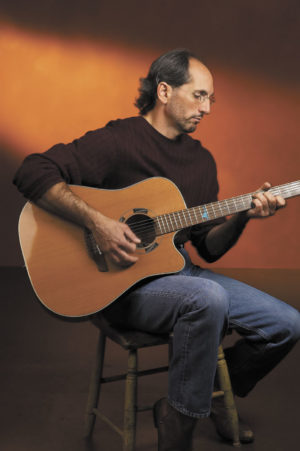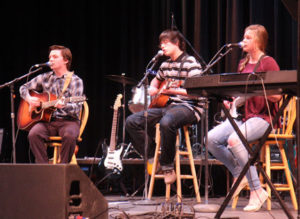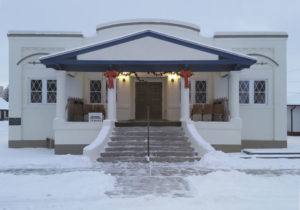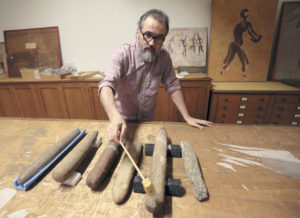By John Mattingly
“My-my, hey-hey, rock and roll is here to stay…”
Because a lot of the great rock music is now regarded as classic or oldies, Neil Young may be right; that rock will always be with us, though it may elevate to a truly classic status, in which the great rock and roll of Mayall, Cream, Stones, Beatles, ZZ Top, Hendrix, Doors, and a host of others will rise to the same historical atmosphere as Mozart, Chopin, Schubert, Bach, and Britten.
The term rock and roll gained wide popularity from a Cleveland-based disc jockey, Albert Alan James “Moondog” Freed in the 1940s who played a blend of country, rhythm and blues, and “race music” from black artists. Freed’s sponsor, Leo Mintz, encouraged him to call his show The Moondog Rock & Roll House Party in an effort to spread race music to a wider, whiter audience. In the late ‘20s and 30s, black artists had produced a host of popular songs, including the titles Rockin’ Rollin’ Mama and Rock and Roll. Freed and Mintz were instrumental in re-branding race music as rhythm and blues that eventually became rock and roll.As a kid growing up in the 1950s, I recall the words themselves, rock (to shake up or be overtaken by the spirit) and roll (to move about or engage in sex) combined in the minds of many of my elders to evoke responses like provocative, inappropriate, jungle music, beatnik music, or just “noise,” all of which made it instantly appealing to the girls I went out with. It moved us in ways that the classicists and romantic crooners and country carolers did not. Steven Pinker, in How the Mind Works, hypothesized in that many baby boomers wanted to be rock and roll stars because this role attracted the opposite sex more than being a sports hero, or any other sort of hero, and certainly more than the tortuous path of traditional courting. Being in a band was one of the big Things To Be in the ’50s and ’60s.
I played the French horn. Not exactly a rock instrument. After I heard Dennis Brain play the French horn in Britten’s piece composed to Rimbaud’s Illuminations, I felt I had more to offer the world by growing food.
[InContentAdTwo] And then there was the influence of an old man, Wilf, a family friend and one of several neighbors I helped doing odd jobs. A widower, long retired from the Geology Department at CSU, Wilf was known as a “rock hound.” He had rocks and crystals and minerals and mining relics everywhere in his house and yard. For reasons I never quite keyed out, Wilf took a special interest in giving me tutorials on life’s persistent questions. It was Wilf who explained to me as a five-year old why shadows were longer or shorter than what made them, that we lived in a solar system of nine planets, each with a fascinating story – especially Urine-us, or Your Anus – and he also explained to me that humans were the only species that persisted in asking questions which they knew had no answers. Sometimes, Wilf would entertain a tangent topic that quickly became a long story.
“So I suppose you can’t get enough of that rock music,” he stated to me one day as I helped him move “give-aways” down from his attic, including a large, stuffed reptile the size of a small dog dressed in a tux and holding forth an ash tray.
I stopped on the stairs. “Uh, well, yeah, sort of, I mean: I guess so.”
“I never understood why they call it rock and roll. They obviously don’t know that rocks are now being considered for inclusion in the Linnaean System as the Eighth Kingdom.”
“No, I did not know that, but…”
“It’s now understood that rocks are alive. They reproduce without DNA. Crystals. There’s your answer.”
My suddenly silent face probably showed some blend of doubt and confusion at this prospect. I knew enough basic biology to know that Linnaeus had initially described two Kingdoms, animals and plants. Subsequently five more Kingdoms were added: bacteria, archaea, protozoa, chromista, and fungi. I also knew that the term Kingdom was a subset of Domain and Life. Rocks were supposed to be inert, not a part of Life and therefore ineligible to become a Kingdom with subclassifications of Phylum, Order, Class, Family, Genus, Species and Subspecies.
Wilf maintained his position at the base of the stairs and I maintained five steps up. He had done this several times before, when he wanted to emphasize the importance of what he was about to say. “How does a plant or a tree get its rocks? Its minerals?”
He had me there. I hadn’t much thought about it. I shrugged. The only thing that occurred to me was: “Maybe the word ‘rock’ is a noun or a verb, depending?”
Wilf looked at me with amusement teetering toward pity. “If you don’t learn anything from me, son, I hope you at least remember that we came from rocks, created in supernova. Where else do you think carbon and nitrogen and iron and all the other elements come from? Think about it. Without rocks there is no life. A plant and a rock get together in the earth at the tiniest of root hairs to capture the sun. A human and a rock meet in the digestive system and produce energy. At the moment of interface between the rock and root, the rock comes alive, and that is why they are being considered for the Eighth Kingdom. Rocks are so alive.”
“Rocks?”
“People say rocks are not alive? Rocks are living, the most fundamental organizing structure in the universe. Rocks have an obvious life cycle. They are born from volcanos, go through an igneous to sedimentary to metamorphic morphology and then, migrating to the bottom of the ocean to a subduction zone to be born again from a volcano. The cycle takes hundreds of millions, even billions, of years. Rocks are born, and they patiently work their way back to the oceans. Some of the more fortunate rocks get to sit around in a mountain for a couple hundred million years before getting off their moss and getting on down to the water. Just kidding on the last part.”
Around this point, I asked Wilf where he wanted me to put the reptile ash tray, but he apparently didn’t hear me. “No, son, it makes no sense to call the kind of music you kids like to listen to as rock. Rocks are very organized, very solid, and most of all quiet. Their birth is loud, but after that, they keep a lid on it. Whereas this music today is random, disparate and, most of all, loud. Protect your ears. If you learn nothing else from me, protect your ears.”
Wilf actually gave a lot of good advice. I knew that he was very wealthy. He had been smart about the uranium play in the West during the birth of the atomic age. He lent my parents $5,000 for materials to build our house, which added to my faith in my parents because Wilf seemed like a good judge of character, and he looked like a wise old man. His wife had died, and he lived as if each dollar was his last. When he paid me he took each dollar out of his wallet and squeezed and rolled it be sure it was a single as he counted it into my hand. He made exact change from his pocket. He drove a Crown Victoria with a peeling vinyl roof, shopped with coupons, and I once saw him clean out the inside of eggshells with his forefinger after cracking them open for an omelette.
Starting with Wilf, I seem to have been fortunate to have older people among my close friends. More recently, Kenneth Dellenbaugh, a retired concert cellist, was willing to give me some guidance about persistent questions. When I told Kenneth about Wilf’s Eighth Kingdom, Kenny laughed. “That could change the way you heard the word rock in rock and roll.”
It did.
John Mattingly cultivates prose, among other things, and was most recently seen near Poncha Springs.




